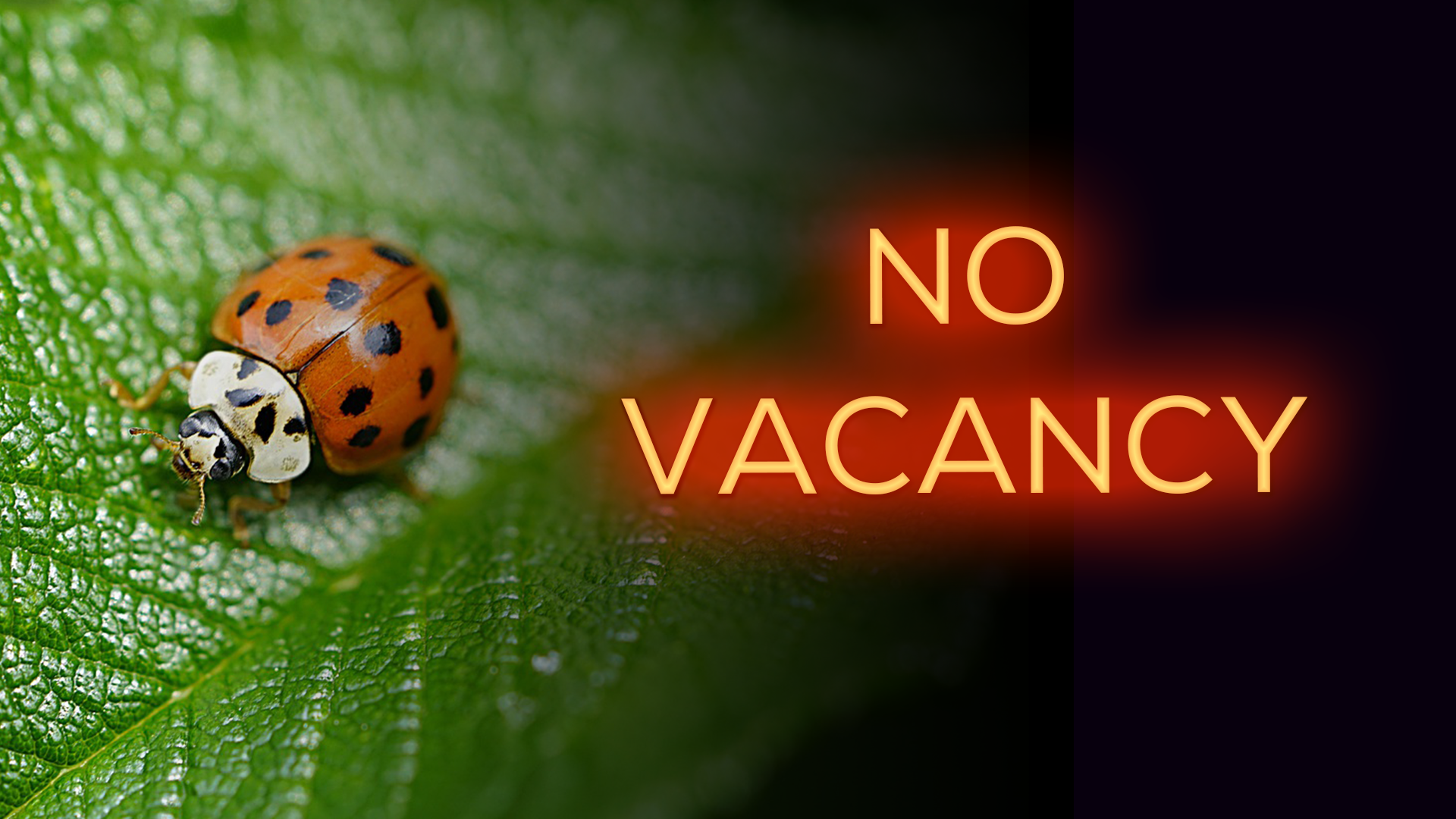September is a month of transitions: from summer to fall weather, vacation to school time and warm to cool temperatures. All these changes mean now is the perfect time to enact a prevention plan to exclude overwintering pests from your home or business.
First, we’ll talk about which pests may be seeking accommodations as the temps drop, and then we’ll share strategies to help you throw up the ‘no vacancy’ sign.
Overwintering Pests in New England
Many of the insects looking for a warm place to spend the winter are harmless, but they can be annoying. In our area, these include ladybugs, stink bugs and spiders. Ladybugs, for example, can be a nuisance if they accumulate in large numbers, and can leave a reddish-brown stain if you squish them. Stink bugs emit an unpleasant odor when crushed. Most common spiders in our area aren’t medically important but still give many people quite a scare.
Other pests cause more serious problems when they decide to settle into your space. These include fleas and ticks that your pets may carry in, as well as mice and rats looking for warm nesting places. In addition to being annoying, they can also carry diseases and cause other health problems.
Closing the Gap
It’s impossible to prevent all pests from entering your home or business, but there are steps you can take to dramatically reduce their numbers. These involve exclusion (preventing them from getting in) and sanitation (not giving them a reason to stay).
For exclusion, inspect your home for any entry points, no matter how small, that would allow pests to enter. To spot them, go into your attic and basement when it’s bright outside and keep the lights off. Any place you see light seeping in is a spot you need to fill. Do the same throughout your home. You’ll often find small holes near joints, doors, windows and pipes.
Externally, look at the foundation and fill any cracks or holes, and replace weatherstripping around doors and windows.
In addition, check anything you are bringing into your home to prevent hitchhikers. Be especially vigilant about fruits and vegetables, as well as holiday décor such as pumpkins, hay bales, cornstalks, greenery and plants.
If they get into your space, pests will need materials for nesting, as well as food and water, so sanitation is key to preventing them from getting too comfortable.
Here are some steps to take:
- Be sure all food is stored in airtight containers.
- Ensure trash is covered and taken out regularly.
- Wipe up spills and crumbs on counters and floor immediately.
- Don’t leave dirty dishes or pet food out overnight.
- Regularly vacuum and dust.
- Keep in mind that some décor items (like ornamental corn) can be a food source for mice and pantry pests.
- Store clothing, linens and holiday décor in airtight plastic containers or sealed plastic bags.
- Wash bedding regularly.
- Keep storage spaces neat and clutter-free.
Taking these steps should help you prevent a lot of potential pest problems. However, small infestations can quickly become big ones, so don’t hesitate to call us when you need help!

